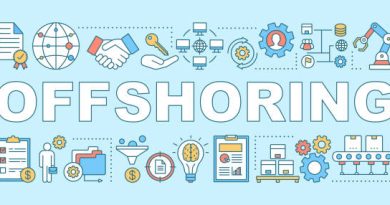Navigating the Maze: Business Loan Documents Required for Success
In the intricate world of business financing, securing a loan can often feel like traversing a labyrinth of paperwork. From startups to established enterprises, understanding the documents required for a business loan is crucial for smooth sailing through the application process. Whether you’re seeking funds to launch a new venture or to expand an existing one, having the right documentation in order can significantly increase your chances of approval and expedite the lending process.
The Essentials: Key Documents
Business Plan:
The backbone of any loan application, a comprehensive business plan outlines your company’s objectives, target market, competitive analysis, financial projections, and repayment strategy. Lenders scrutinize this document to assess the viability and potential of your business.
Financial Statements:
Providing accurate financial statements is paramount. These typically include:
Income Statement (Profit and Loss Statement): Shows your company’s revenue, expenses, and profitability over a specific period.
Balance Sheet: Details your assets, liabilities, and equity, providing a snapshot of your company’s financial health.
Cash Flow Statement: Illustrates how cash flows in and out of your business, crucial for assessing liquidity.
Personal and Business Tax Returns:
Lenders often require both personal and business tax returns for the past few years to evaluate your financial history and assess your ability to repay the loan.
Business Legal Documents:
These may include licenses and permits, articles of incorporation, partnership agreements, and any contracts relevant to your business operations. They demonstrate your business’s legal standing and compliance with regulations.
Collateral Documentation:
If you’re applying for a secured loan, you’ll need documentation related to the collateral you’re offering, such as property deeds, vehicle titles, or inventory appraisals.
Ownership and Management Documents:
Proof of ownership, organizational charts, resumes of key personnel, and any relevant credentials can help establish credibility and expertise.
Additional Documents Based on Loan Type
SBA Loan Documents:
- If you’re applying for a Small Business Administration (SBA) loan, be prepared to provide additional documentation such as SBA forms, personal financial statements, and a business debt schedule.
Equipment Financing Documents:
- For equipment loans, include invoices or quotes for the equipment you intend to purchase, along with specifications and warranties.
Commercial Real Estate Loan Documents:
- If you’re seeking financing for commercial property, you’ll need property appraisals, environmental assessments, and lease agreements.
Read more about: how to start a tour business
Tips for Success
Organize and Prepare in Advance:
- Start gathering required documents early and ensure they are accurate and up to date. A well-organized application package demonstrates professionalism and reliability.
Seek Professional Guidance:
- Consider consulting with financial advisors or loan specialists to navigate complex requirements and optimize your application.
Be Transparent and Communicative:
- If there are any discrepancies or challenges with your documentation, communicate openly with the lender to address concerns promptly.
Review Before Submission:
- Thoroughly review all documents before submission to avoid errors or omissions that could delay the process.
Conclusion
While the array of business loan document required may seem daunting, they are essential components of a successful loan application. By diligently preparing and presenting these documents, you not only enhance your chances of securing financing but also demonstrate your commitment to transparency and professionalism. Remember, each document serves a purpose in showcasing the strength and potential of your business, so approach the process with diligence and confidence. With the right paperwork in hand, you’ll be well-equipped to navigate the loan application journey and propel your business toward its goals.


